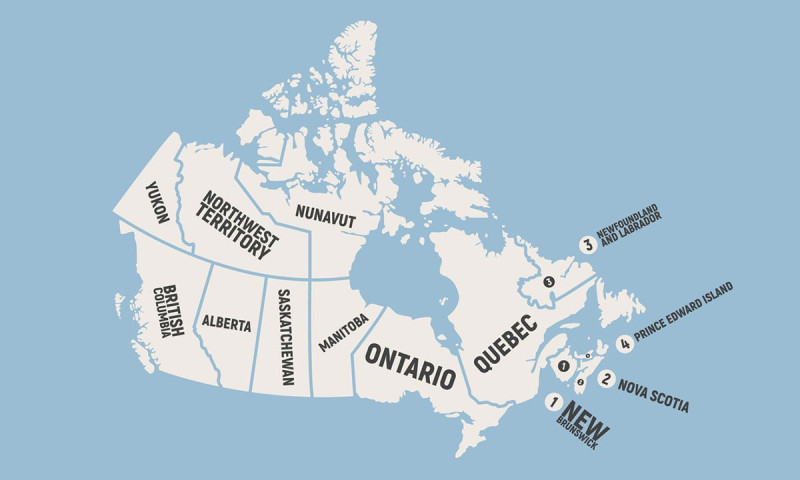Provinces Push for Immigration Power

Provincial leaders demand more control over immigration to address local needs
On This Page You Will Find:
- Insights into provincial demands for immigration control
- The impact on local economies and labor markets
- Federal responses to provincial immigration initiatives
- Challenges with asylum work permits and processing delays
- Future implications for Canada's immigration landscape
Summary:
In a bold move, Canadian provinces are seeking more autonomy over immigration policies, arguing they can better address local labor needs. At the recent Council of the Federation meeting, provincial leaders expressed frustration over federal controls, especially regarding economic immigration and asylum work permits. While the federal government has responded with funding for settlement services, tensions remain high. This shift could significantly alter Canada's immigration framework, affecting everything from job markets to public services.
🔑 Key Takeaways:
- Provinces want more power to set their own immigration levels.
- Economic needs are driving provinces' demands for control.
- Delays in asylum work permits are a critical issue.
- Federal funding aims to support newcomer settlement.
- A shift in control could reshape national immigration policy.
Sarah Chen stared at her computer screen at 2 AM, overwhelmed by the myriad of immigration policies affecting her future in Canada. As a software engineer from India, she had hoped the path to permanent residency would be straightforward. But the growing clamor from Canadian provinces for more control over immigration has added layers of complexity to her journey. Imagine a landscape where each province could tailor immigration to its unique needs—this could alter everything from job opportunities to community dynamics.
Provinces Seek Autonomy in Immigration
Canada's provincial premiers are clamoring for greater control over immigration policies, including the power to issue work permits and set their own economic immigration levels. This demand was a focal point at the annual Council of the Federation meeting, which concluded on July 24, 2025, in Huntsville, Ontario CTV News. Ontario Premier Doug Ford announced that provinces would use constitutional powers to gain more autonomy, criticizing federal Immigration Minister Lena Diab for not aligning with Prime Minister Mark Carney's vision CBC News.
Local Economies and Labor Needs
Premiers argue that provincial governments are best positioned to assess and address local labor market demands. They are pushing for increased allocations under the Provincial Nominee Program (PNP), which allows provinces to select immigrants for priority sectors. This need has become more acute after PNP allocations were halved in 2024 under Justin Trudeau's government Global News. Manitoba Premier Wab Kinew emphasized the threat these cuts pose to rural economies reliant on manufacturing and service workers The Globe and Mail.
Challenges with Asylum Work Permits
One pressing issue is the delay in processing work permits for asylum seekers, which has left many eligible workers in limbo. In 2024, nearly 100,000 asylum seekers in Ontario faced such hurdles, leading to prolonged stays in temporary accommodations like hotels Toronto Star. Quebec Premier François Legault criticized Canada's lengthy processing times, which average three years compared to France's three months CBC News.
Federal Government's Response
Despite the criticism, Minister Diab is committed to working with provinces and recently announced $3.2 billion in federal funding for immigrant settlement services over three years The Canadian Press. This funding aims to support 520 organizations outside Quebec, offering language training and credential recognition assistance Ottawa Citizen. However, premiers insist that more support is needed to expedite the integration of immigrants into local job markets.
Future Implications for Immigration Policy
The provinces' push for more control could lead to a more regionally tailored approach to immigration. While this may enhance responsiveness to local economic needs, it could also challenge the consistency of national immigration policies National Post. As debates continue, the future of Canadian immigration remains a dynamic and evolving landscape.
References
- CTV News
- CBC News
- Global News
- The Globe and Mail
- Toronto Star
- CBC News
- The Canadian Press
- Ottawa Citizen
- National Post
 RCIC News.
RCIC News.